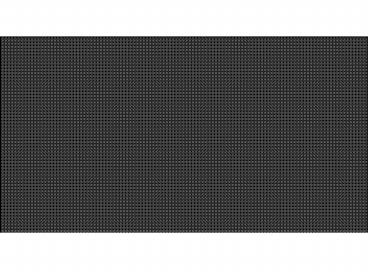Energy Mandate For Existing Buildings - PowerPoint PPT Presentation
1 / 16
Title:
Energy Mandate For Existing Buildings
Description:
The sustainability Initiative, National Trust for Historic Preservation ... Existing commercial buildings must have a minimum of 10,000 sq. ft to qualify ... – PowerPoint PPT presentation
Number of Views:21
Avg rating:3.0/5.0
Title: Energy Mandate For Existing Buildings
1
(No Transcript)
2
Energy Mandate For Existing Buildings
May 27, 2009 UW Environmental Law Regulation
Green Development Group
3
The Team
- Green Development Group
- Ellen Allen
- Sony Dave
- Matt Jones
- Anayansi Daniel Ricketts
- In collaboration with Paladino Company
- Paladino is a team of architects, engineers,
building scientists and business analysts who are
transforming the way buildings are designed,
constructed and operated to reduce the
environmental footprint of buildings
4
- We cant build our way out of climate change
- -The sustainability Initiative, National Trust
for Historic Preservation
40-45 of carbon dioxide emitted into the
environment is caused by existing buildings 70
of fossil fuels created are used to operate
buildings 99 of the current building inventory
is existing buildings, only 1 is new
construction
5
The Why
- The Problem With little economic incentive, and
no federal, state or local regulations for
existing buildings, we have established a culture
that caters to teardown and waste rather than
reusing and retrofitting. - Existing buildings are disappearing without
consideration for intrinsic, cultural, and
community value and their embodied energy. - The Vision Reusing older buildings is the most
sustainable practice in our built environment
today. We need to devote more attention and
effort to reusing what already exists.
6
The Gaps
e
- Majority of current green building
programs/incentives focus on new construction
(the 1 of the building inventory) - Lack of an available existing building energy
database - 15 of landfills consist of demolition waste
which is currently not required to be recycled - Many incentives and programs focus solely on
initial development and installation Follow-up
programs are not required
7
The What
- Energy Mandate is a Policy and Program in place
for Existing Buildings with five requirements. - The Five Requirements
- R1 City of Seattle Existing Building Energy
Efficiency Code (The Policy) - R2 Existing Building Carbon Tax/Carbon Credit
- R3 New Existing Building Energy (EBE)
Departments - R4 Building Assessment System Program
- R5 Existing Buildings Energy Database
8
The How
- R1 City of Seattle Existing Building Energy
Efficiency Code (the Policy) - Goes into effect in 2012
- Existing commercial buildings must have a minimum
of 10,000 sq. ft to qualify - Requires a 10-30 decrease in annual energy
consumption based on building age (Level I, Level
II, Level III and Level IV) - Accounts for extenuating circumstances in
buildings
9
The How
- R2 Existing Building Carbon Tax/Carbon Credit
- Tax/Credit as it relates to construction of
Existing Buildings (i.e. retrofit, renovation, or
tenant improvement) - A carbon tax will be levied on companies or
individuals who demolish buildings. This tax will
look at the embodied energy of an existing
building - Carbon tax credit for choosing to renovate or
retrofit an existing building - Flexible Cap n trade system
10
The How
- R3 New Existing Building Energy (EBE)
Departments - Requirement is to implement three streamlined
departments which will be created to help assist
with this policy and program - (1) New branch of DPD created to expedite
permitting process - (2) Seattle City Light EBE manages the EBE
Database - (3) Property Assessors Office enforces Carbon
Tax/Carbon Credit System
11
The How
- R4 Building Assessment System Program
- Requirement is that future renovations/retrofits/
full and partial building modernization projects
must subscribe to one of the Building Assessment
Systems such as LEED, Energy Star, ASHRAE, ISO
etc. - Use a Building Assessment System as a path to
achieving compliance mandate goals
12
The How
- R5 Existing Buildings Energy Database
- EBE Database is a common standardized public
database outlining information specifically for
Existing Buildings - Compatible and linked to the Energy Star
Portfolio Manager - Cultivate market transparency by implementing the
EBE Database
13
Incentives For Continued Innovative Design And
Construction
- Expedited permitting review
- Permitting fee waivers
- Building density bonuses
- Carbon credits and reimbursements
14
The Outcomes
- Health
- Empowerment
- Regulatory Context
- Foster Holistic/Collaborative Approaches
- Education
- Economics
May 27, 2009 UW Environmental Law Regulation
Green Development Group
15
Energy Mandate For Existing Buildings
Energy Mandate Scenarios 456 Northwest The 1926
Landmark Building Lose-That Fat Fitness
Arena Stage I Building Owner Checklist (7
min) Stage 2 Commissioner Checklist (7
min) Stage 3 DPD Permitting Checklist (7 min)
May 27, 2009 UW Environmental Law Regulation
Green Development Group
16
Energy Mandate For Existing Buildings
May 27, 2009 UW Environmental Law Regulation
Green Development Group































